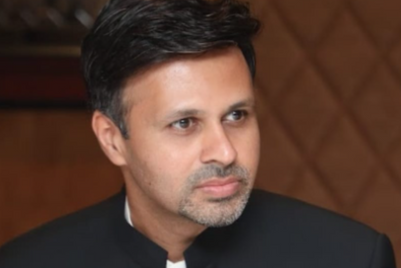
Like every year, Campaign India is celebrating the last month of the year by engaging with industry leaders and asking them about the year gone by.
This is what, Kartik Kalla, chief creative officer, Radio City, had to say:
What do you not want to see in advertising next year?
In advertising, it's important to be creative and engaging, but there are some things that I do not want to see in advertising next year.
Firstly, I do not want to see ads that use fear-mongering or scare tactics to sell products. These ads manipulate people's emotions and can be damaging to mental health. Instead, I would like to see ads that are positive, uplifting, and focused on the benefits of the product or service being advertised. Secondly, I do not want to see ads that are dishonest or misleading. These ads can be frustrating and can damage trust in the advertiser. Instead, I would like to see ads that are transparent and honest. Also, it's sad to still see some stuff on gender stereotypes that contribute to a toxic culture. Stop that.
Finally, I do not want to see ads that are repetitive and boring. These ads can be easily ignored or forgotten. Instead, I would like to see ads that are fresh, innovative, and attention-grabbing. In conclusion, I do not want to see ads that are sexual, manipulative, dishonest, or boring in advertising next year. Instead, I would like to see ads that are inclusive, positive, honest, and creative.
Your favourite ad campaign from 2022?
#ReverseSelfie by Dove: Social media has become a breeding ground for unrealistic beauty standards that can have a detrimental impact on people’s self-confidence. In 2022, the #ReverseSelfie campaign by Dove aimed to challenge these standards by encouraging people to post selfies in reverse, removing a heavily edited beauty filter to reveal her true identity. The video showed a girl posting a selfie in reverse, revealing her true, unedited face. The message was clear – the beauty standards promoted by social media are harmful and need to be challenged. What made this campaign so effective was that Dove, a brand in the beauty industry, was tackling an issue that is prevalent in its industry. By speaking out against these harmful beauty standards, Dove was able to help shift the conversation and promote a more inclusive and realistic view of beauty.
A learning from this year?
A learning for this year is the importance of being adaptable and flexible in the face of a constantly changing landscape. With the rise of new technologies and platforms, advertising professionals must stay up-to-date and be willing to try new things to stay relevant and effective.
Additionally, the growing emphasis on diversity, inclusion and ethical practices means that advertising professionals must be aware of and sensitive to these issues to create successful campaigns. Overall, being open-minded and willing to learn and evolve is key for any advertising professional in today's market.
The overused marketing jargon of 2022?
In 2022, the marketing industry is inundated with overused jargon and buzzwords. These cliched phrases have become so commonplace that they have lost their original meaning and impact. Some of the most commonly used jargon in marketing include purpose-driven, disruptive innovation and game changers. These words are often used to describe a product or service that is supposedly revolutionary but in reality, they are just marketing buzzwords that do not add any real value to the conversation.
Another overused term is 'thought leadership', which is often used to describe a person or company that is considered to be an expert in their field. However, this term is often used indiscriminately, without any real evidence to back up the claim.
The use of these buzzwords has become so pervasive that many consumers have become immune to them. They are no longer impressed or swayed by marketing messages that use these tired phrases.
To combat this problem, marketers need to start using more authentic and genuine language in their messaging. They should focus on providing real value to their audience and avoid relying on overused jargon to convey their message. By doing so, they can create more meaningful connections with their audience and build trust and credibility.
Were you able to maintain your work-life balance this year? If yes, how? If not, how do you plan to correct it next year?
Yes, I was able to maintain my work-life balance this year by setting clear boundaries and priorities. I made sure to carve out dedicated time for both my professional and personal obligations, and I actively communicated with my colleagues and loved ones about my availability. I also made a conscious effort to prioritise self-care and regular exercise, which helped me stay energised and focused. Overall, I feel like I struck a healthy balance between my work and personal life this year.






.png&h=268&w=401&q=100&v=20250320&c=1)



